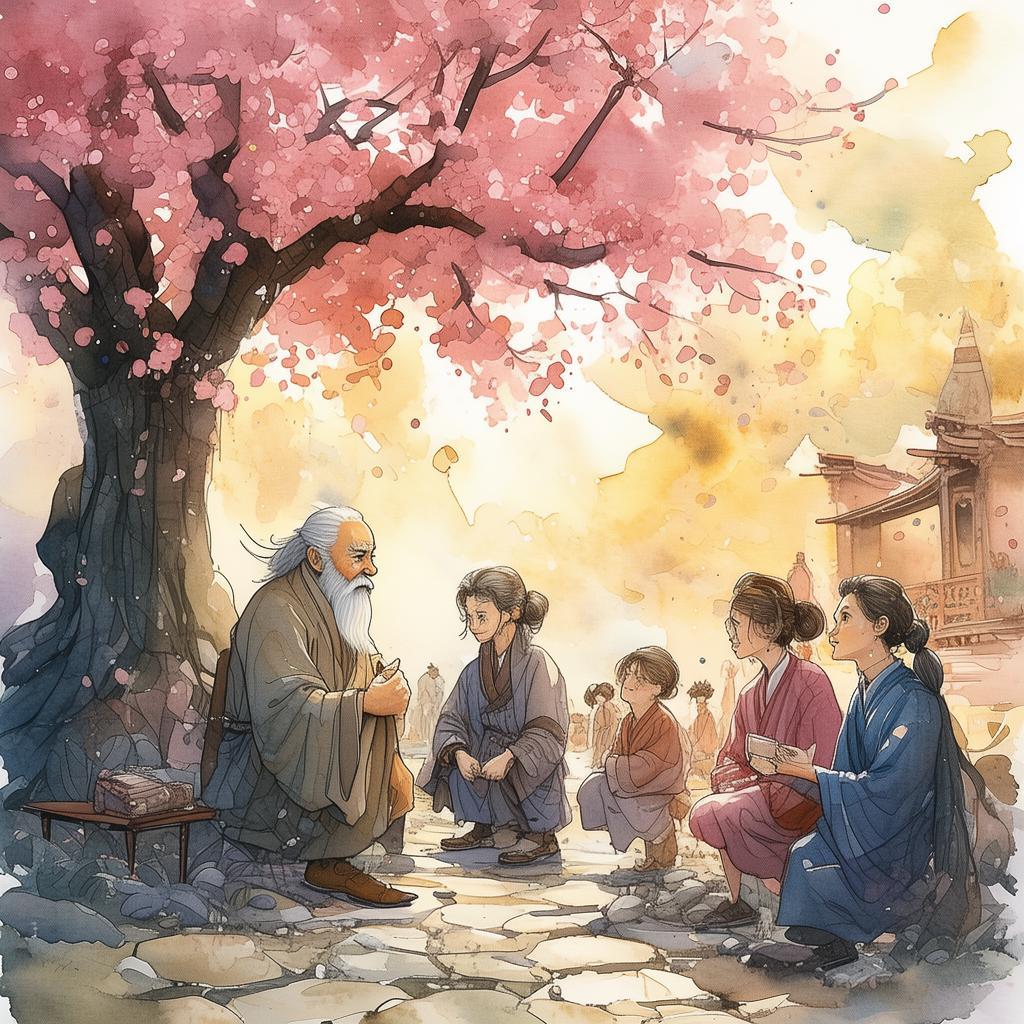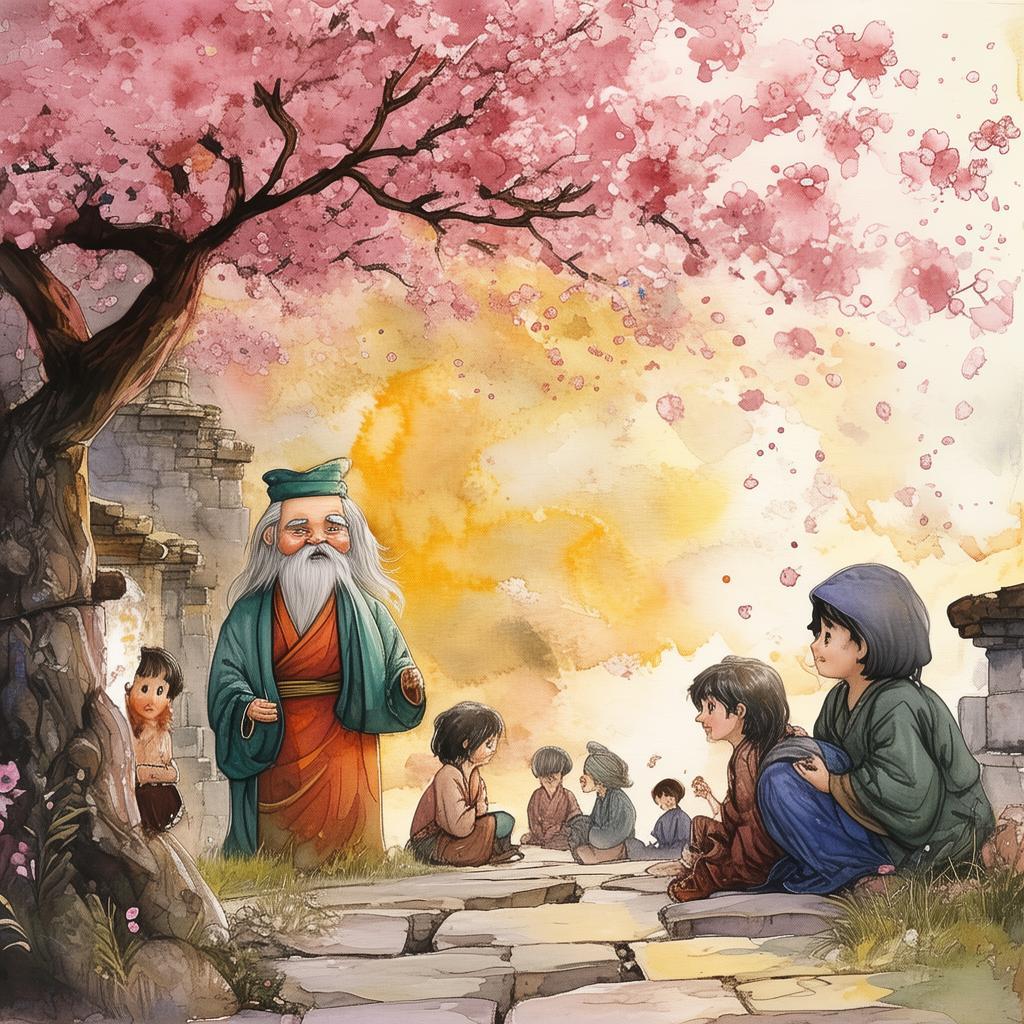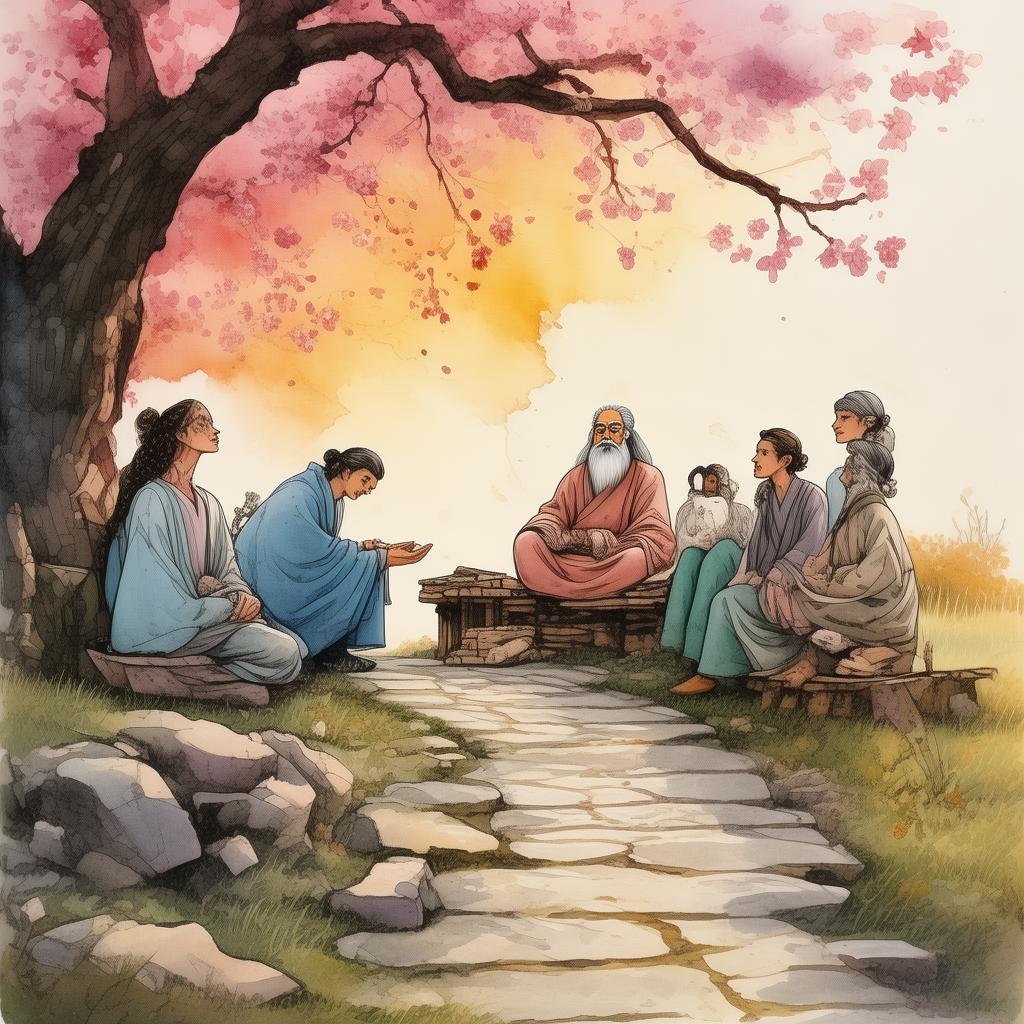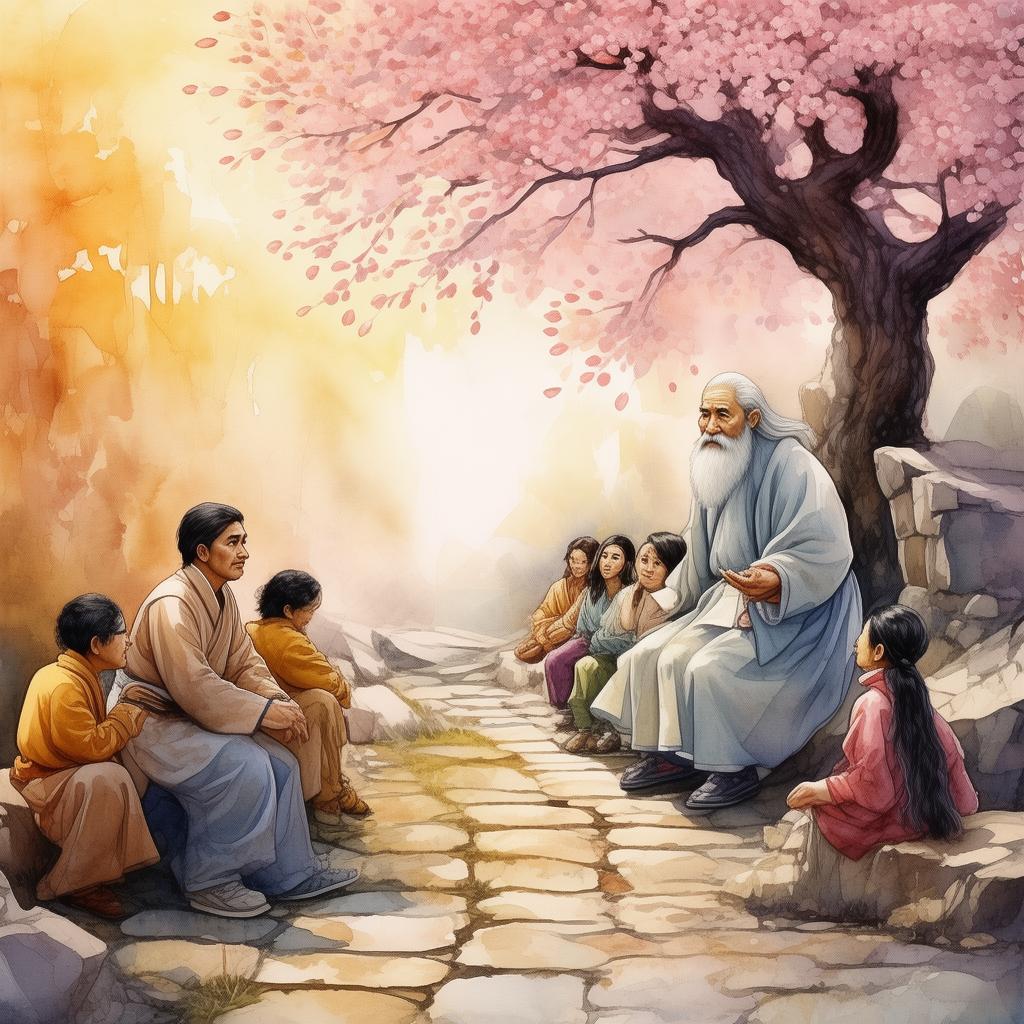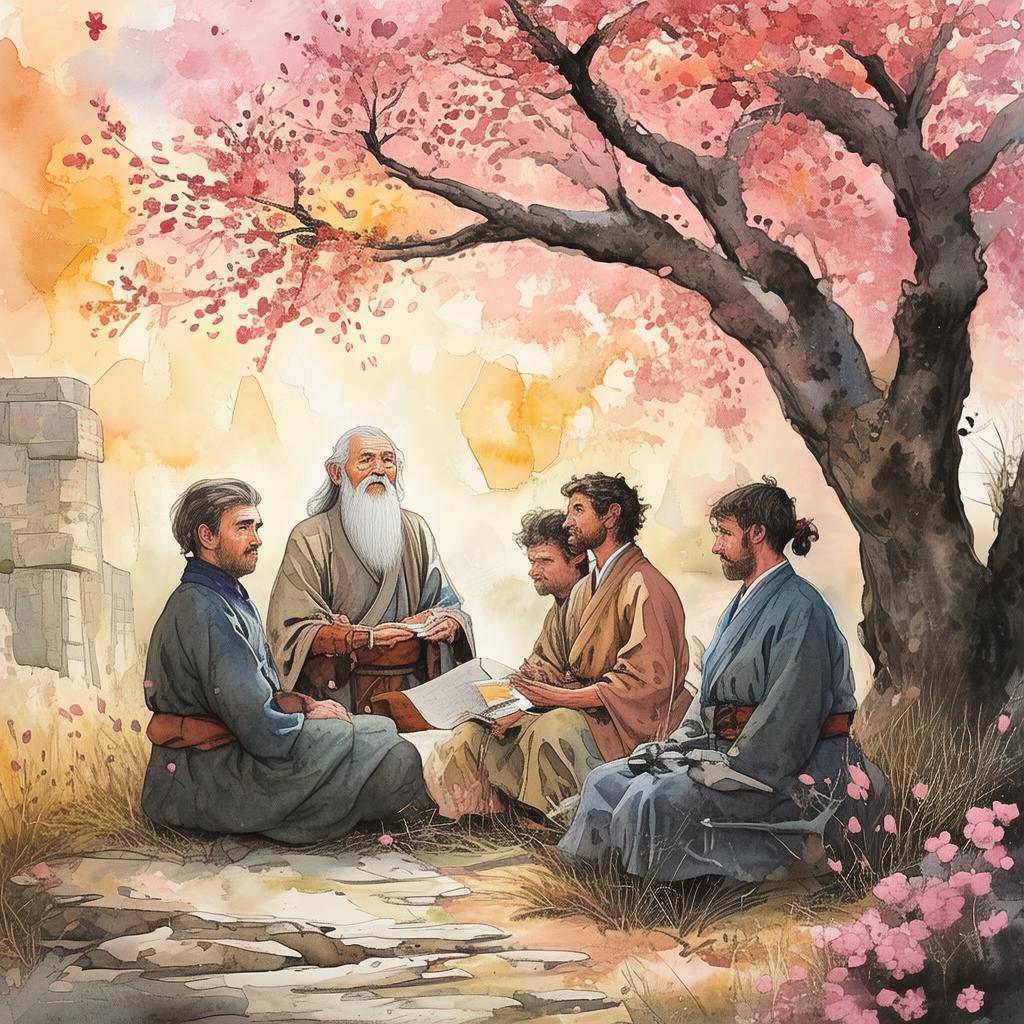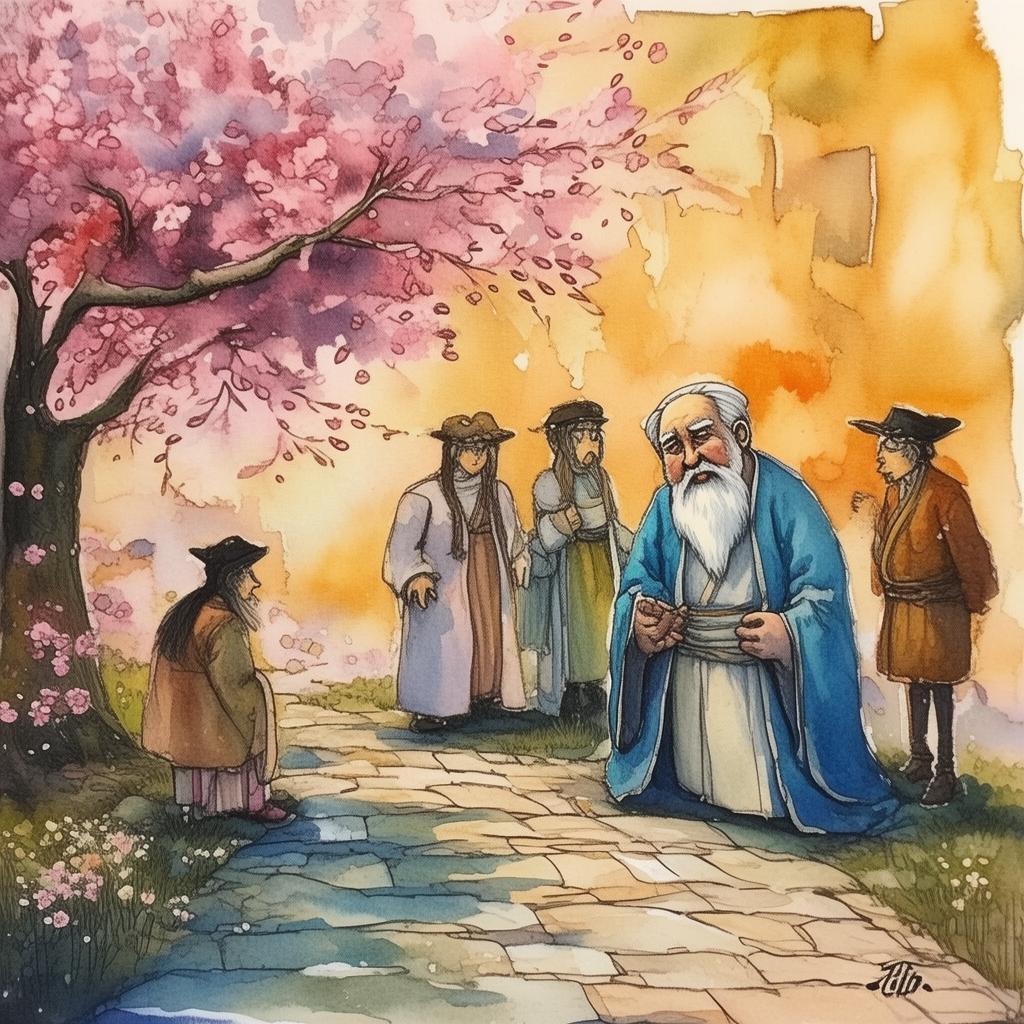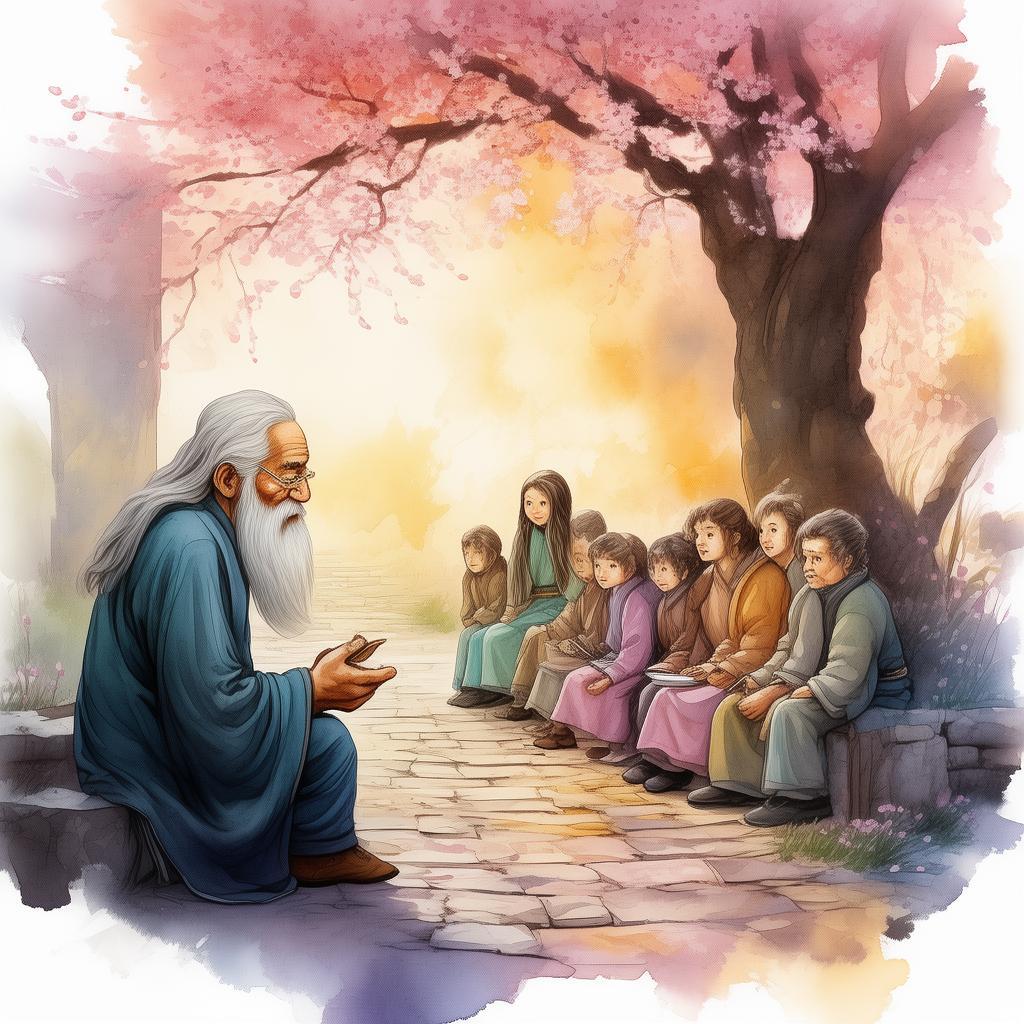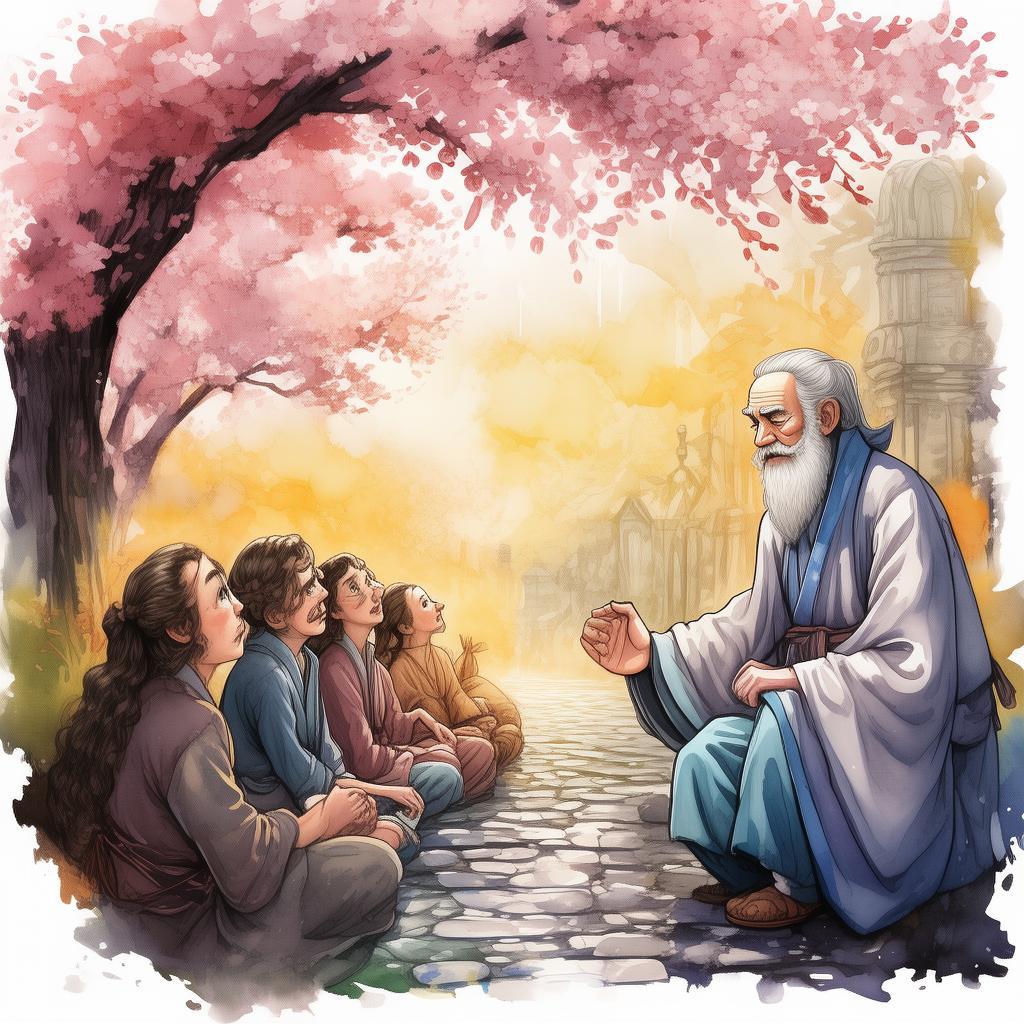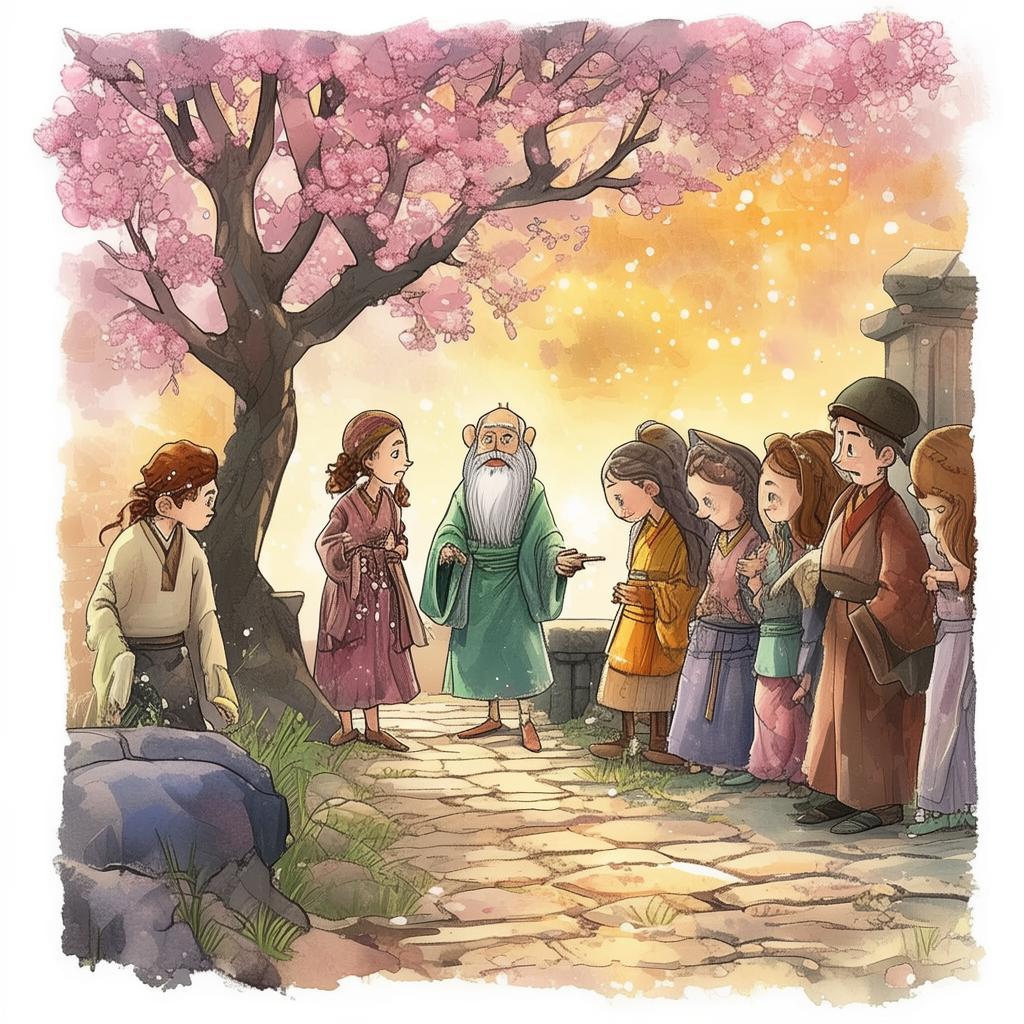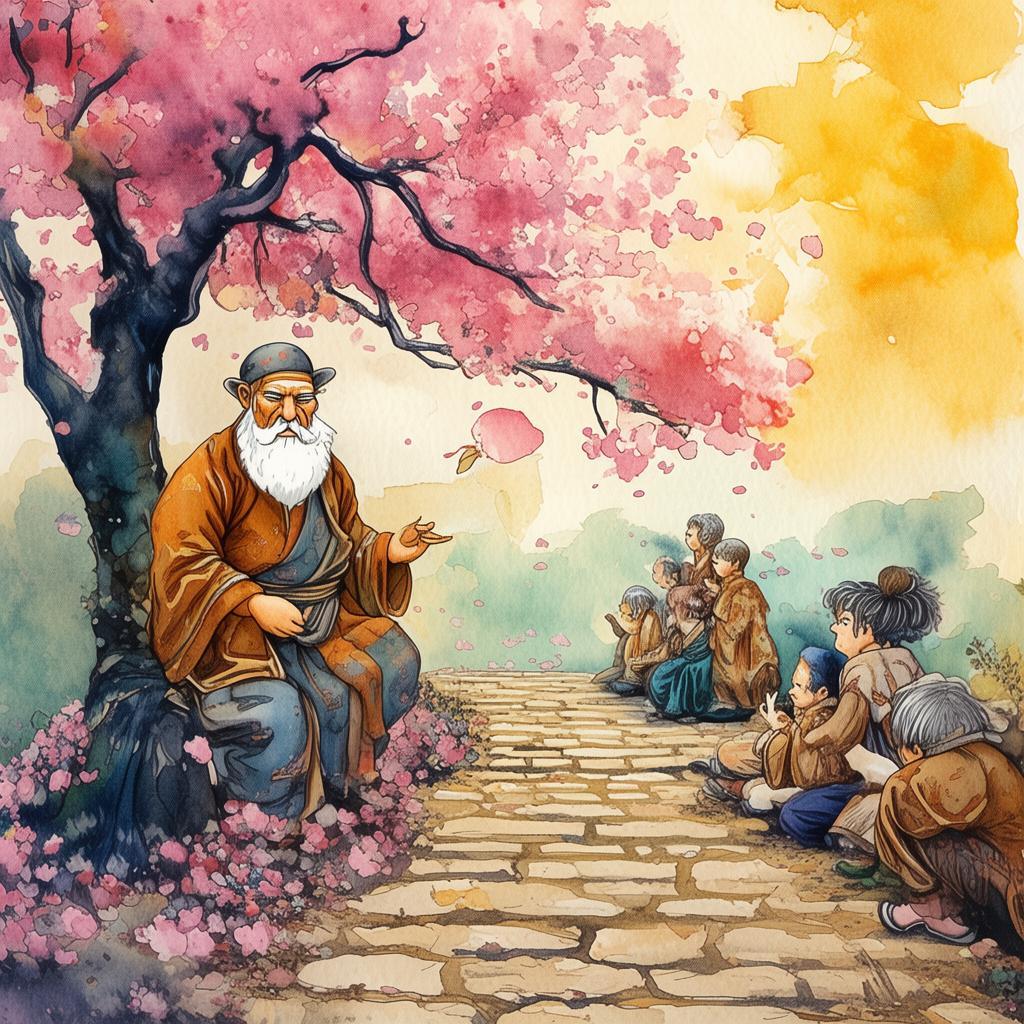The Labyrinth of the Lost Word: A Journey to the Heart of Language
In the heart of an ancient library, hidden away from the world, there lay a labyrinth of words—a place where the boundaries between reality and imagination blurred. This was the Labyrinth of the Lost Word, a place where the very essence of language was said to be preserved, each word a key to unlocking the wisdom of the ages. But it was also a place shrouded in mystery and danger, as the words were not merely preserved but also protected by the enigmatic forces of the language itself.
The story begins with Dr. Li Wei, a renowned linguist and a scholar with a passion for uncovering the secrets of language. Dr. Li had spent years decoding ancient texts, searching for the lost treasures of language that had been lost to time. One fateful day, he discovered a cryptic manuscript that spoke of the Labyrinth of the Lost Word—a place where the most powerful and elusive of all Chinese idioms, the "Dragon's Roar," was said to be hidden.
The "Dragon's Roar" was a phrase so powerful that it could change the very fabric of reality. It was said to be the voice of the ancient sages, a word that held the power to transform and enlighten. But it was also a word that had been lost to the ages, hidden away in the labyrinth by those who feared its power.
Determined to find the "Dragon's Roar," Dr. Li set off on a journey that would take him through the most treacherous of landscapes and the deepest recesses of his own mind. The labyrinth was not merely a physical place but a metaphor for the labyrinth of the mind, where the true challenge lay in deciphering the meaning behind each word and overcoming the self-imposed barriers of language.
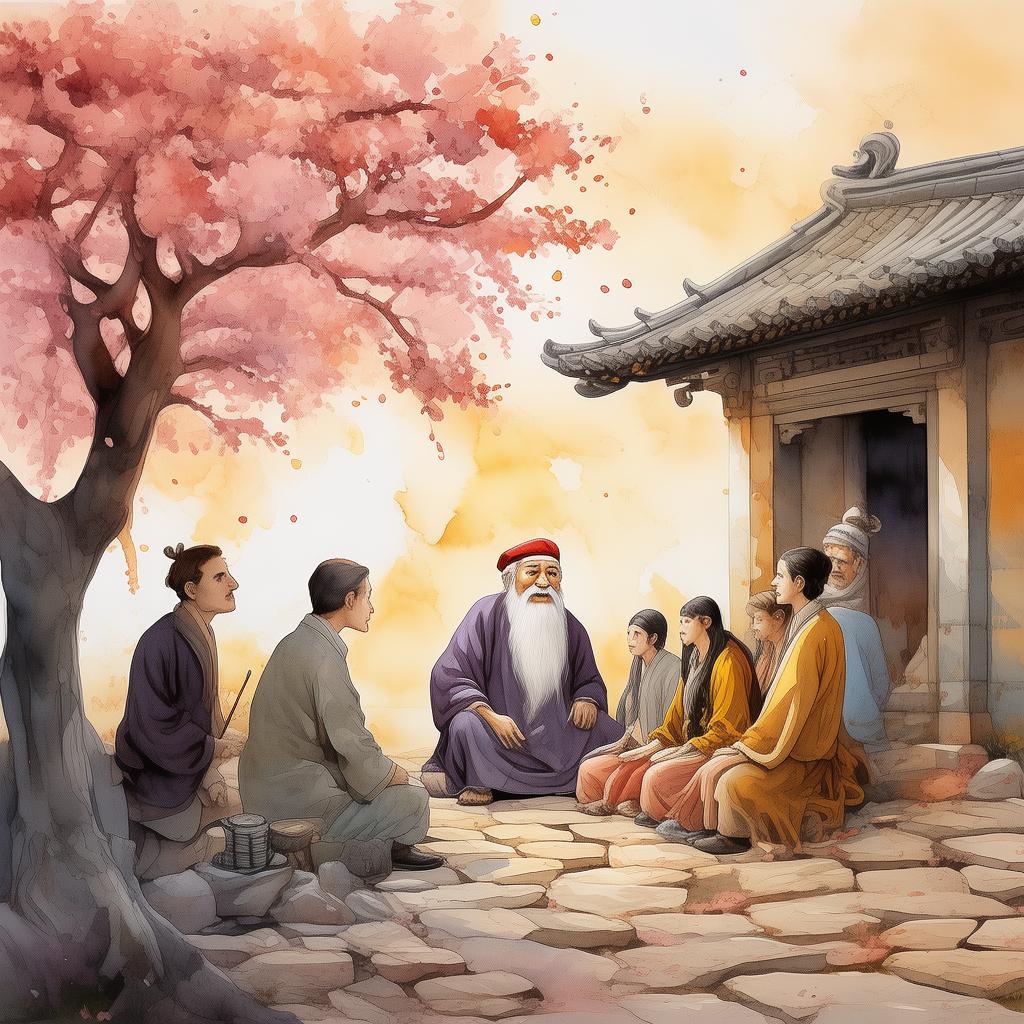
As Dr. Li ventured deeper into the labyrinth, he encountered a series of challenges designed to test his knowledge of language and his understanding of the world. Each challenge was a riddle, a puzzle wrapped in a conundrum, and each solution required not only linguistic prowess but also a deep understanding of the human condition.
One of the first challenges he faced was the "Whispering Wind," a room filled with echoes of words that seemed to dance and twist in the air. Dr. Li had to listen to the whispers and discern the true meaning behind each word, a task made more difficult by the fact that the words were spoken in a language he had never heard before.
Another challenge was the "Silent Symphony," a room where the sounds of the words were absent, leaving only the silence that they once filled. Dr. Li had to reconstruct the words from the memories of those who had heard them, a task that required not just his linguistic skills but also his empathy and intuition.
As he moved through the labyrinth, Dr. Li discovered that the walls of the maze were lined with ancient scripts and idioms, each one a clue to the next. The "Mystery of the Moonlit Night" required him to interpret a poem that seemed to speak of love and loss, while the "Echo of the Ancient Sages" demanded that he decipher a riddle that spoke of the nature of truth and reality.
Each step brought him closer to the heart of the labyrinth, where the "Dragon's Roar" was said to be hidden. But as he approached the final chamber, he realized that the true challenge was not in finding the word itself, but in understanding its meaning and the power it held.
In the end, Dr. Li found the "Dragon's Roar" not in a physical form, but in the realization that the power of language lay not in the words themselves, but in the way they connected us to each other and to the world around us. The "Dragon's Roar" was a reminder that language was a living, breathing thing, capable of change and transformation, and that the true power of language was in its ability to inspire and enlighten.
With this newfound understanding, Dr. Li emerged from the labyrinth not as a conqueror, but as a student of language, eager to continue his journey and to share the wisdom he had discovered with the world. The Labyrinth of the Lost Word had not only revealed the power of language but also the power of the human spirit, proving that the true journey was not just one of discovery, but also one of self-discovery.
✨ Original Statement ✨
All articles published on this website (including but not limited to text, images, videos, and other content) are original or authorized for reposting and are protected by relevant laws. Without the explicit written permission of this website, no individual or organization may copy, modify, repost, or use the content for commercial purposes.
If you need to quote or cooperate, please contact this site for authorization. We reserve the right to pursue legal responsibility for any unauthorized use.
Hereby declared.
